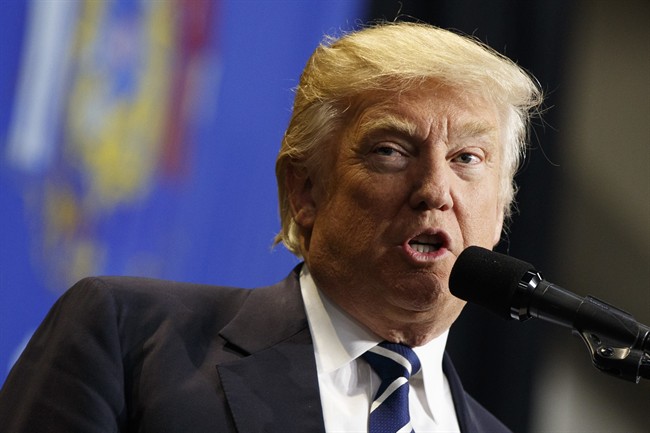TORONTO – As the U.S. presidential inauguration grows near, researchers at the University of Toronto are kickstarting a movement to preserve environmental data they believe could be at risk under Donald Trump‘s leadership.

A group of professors is planning what they call a “guerrilla archiving” meeting in Toronto on Saturday, the first such event in a broader project to find and capture sensitive information currently available to the public through the U.S. Environmental Protection Agency.
The event – a collaboration with the Internet Archive, a non-profit digital library – will also serve as a blueprint for future archiving sessions, including one planned at the University of Pennsylvania.
READ MORE: Donald Trump choosing climate-change denier to head Environmental Protection Agency
One of the organizers, Michelle Murphy, says she and her colleagues decided to take action after seeing Trump’s transition team, which includes several climate-change skeptics.
Trump recently appointed Oklahoma attorney general Scott Pruitt, who opposed Obama’s climate change policies, to lead the EPA. He also named a man with close ties to the oil industry, former Texas governor Rick Perry, as energy secretary.
Murphy, who works in science and technology as well as environmental studies, says Trump’s appointments and his campaign pledge to eliminate the EPA pose a threat to the future of “evidence-based environmental governance” in the U.S.
READ MORE: Leonardo DiCaprio meets with Donald Trump to discuss fighting climate change
“If we’re going to be moving into an era where fracking, pipelines, extraction and industry is less regulated than it is now, having public access to data about the conditions around those ventures is going to be crucial to contesting them,” she said.
- Delivery issue: Why Canada Post ‘must change’ to avoid collapse
- London, Ont. train fire: How sparks from locomotive exhaust may have played a role
- Most Canadians could get a test alert today. Which regions won’t?
- Trans Mountain pipeline expansion will boost Canadian oil prices ‘for years’: MEG Energy
“So this data is not just for posterity – it’s for communities, it’s for organizations, it’s for environmental justice.”
Data are frequently at risk during during major political transition, and the Internet Archive has captured and saved government websites at the end of presidential administrations since 2008.
There’s also a history of American and Canadian administrations destroying government data, said Patrick Keilty, an assistant professor in the faculty of information and co-organizer of Saturday’s event.
READ MORE: Donald Trump backs away from vow to pull out of the Paris climate agreement
He pointed to George W. Bush’s efforts to close the EPA library as well as the destruction of scientific documents under former prime minister Stephen Harper.
Now, as Trump’s presidency looms, archiving efforts are focused on the EPA because it has been openly targeted for cuts, but future events could eventually shift to other agencies and departments, Keilty said.
“We don’t think that on Day One, Jan. 20, that he’s inaugurated, all the data will be lost,” he said. “We’re sort of concerned the defunding will mean that the data are starved out over time.”
“It takes a lot of resources – manpower, money – to maintain data, curate it, make it publicly accessible, and if they plan to defund these programs, then they’re also basically defunding public access to their data.”
READ MORE: Climate change not a hoax that we invented: China to Donald Trump
Web crawlers, automated applications typically used to index online content, can’t always capture certain types of content such as spreadsheets and PDF files, which are a go-to for governments in releasing reports and large sets of data, he said.
They also can’t capture documents or data only accessible through a database, Keilty said.
That’s why they need people with good research or organization skills – not just tech wizards – to manually go through the sites and find the most at-risk information, he said.
The event is scheduled to run from 10 a.m. to 4 p.m. at the University of Toronto.
“It’s a huge undertaking but it’s better than doing the sort of wait-and-see strategy that I think some people have decide to take toward the transition.”



Comments